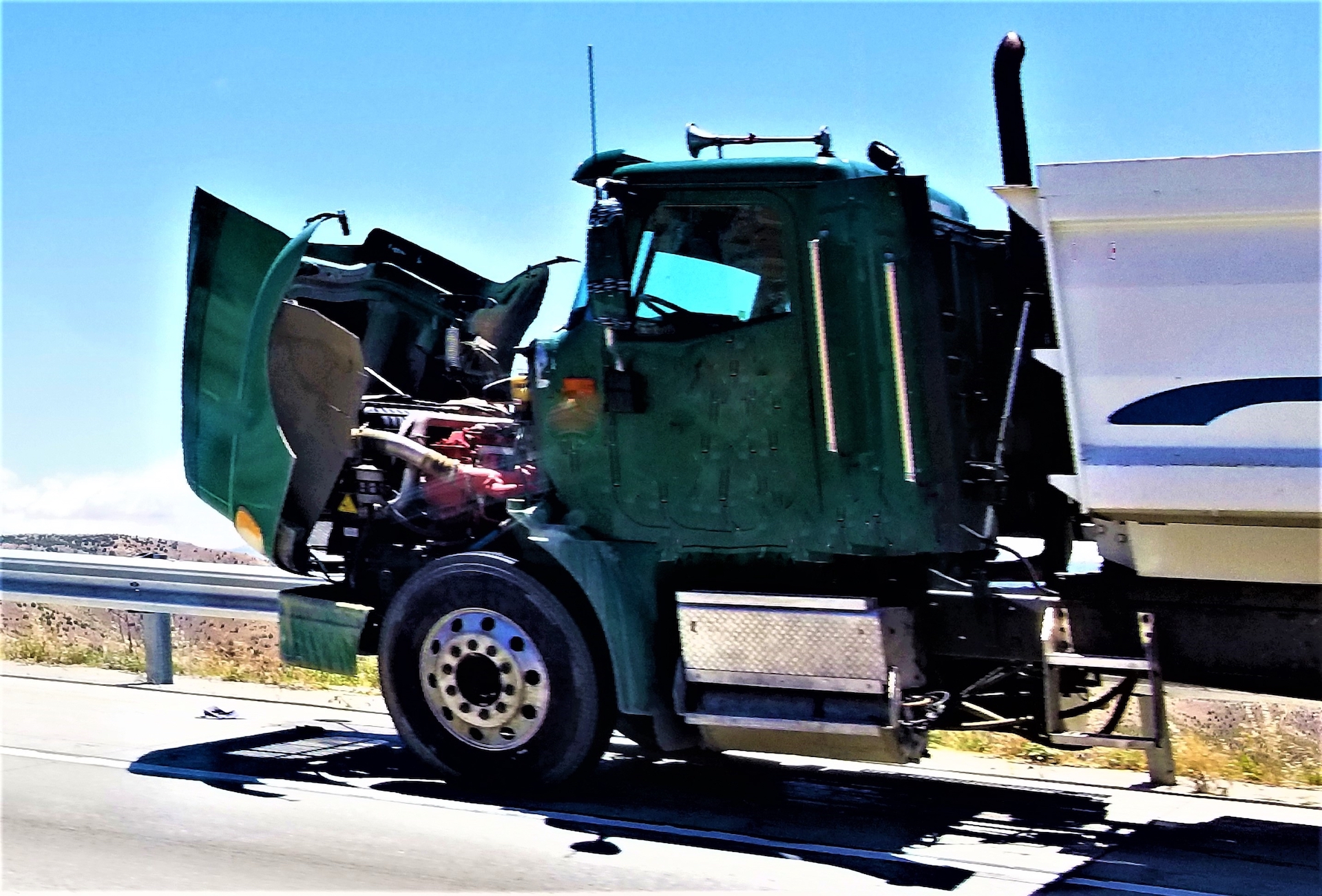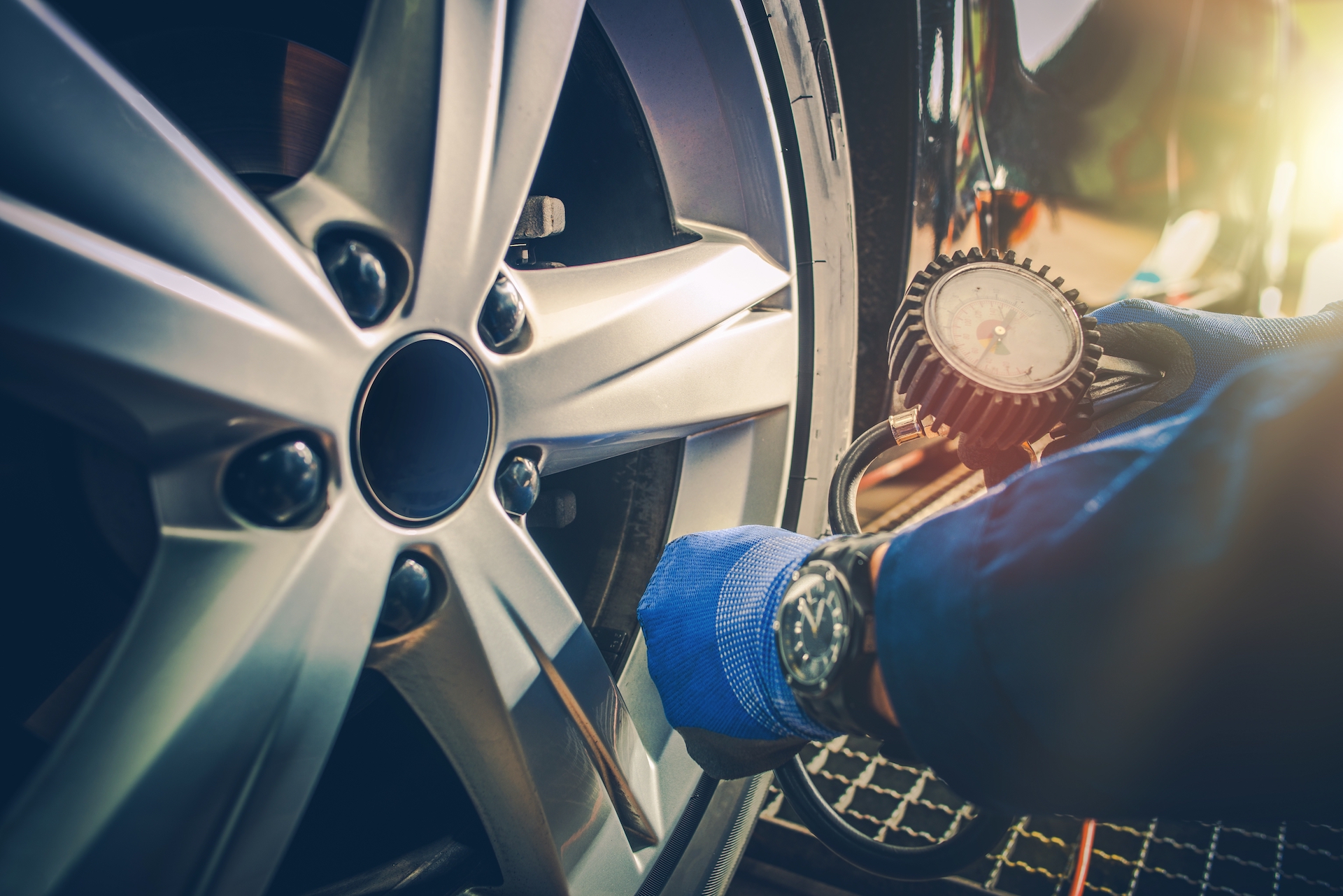
When out on the road, truck breakdown preparedness is key to anything and everything. Having the appropriate emergency equipment while truck driving is an integral part of staying safe and being ready for any outcome. In this article, we’ll be discussing the FMCSA-recommended emergency equipment so that you’ll always have what you need in an unexpected situation.
FMCSA-Recommended Emergency Equipment
The Federal Motor Carrier Safety Administration, or FMCSA, is part of the US Department of Transportation, a federal regulatory body that oversees the safety of commercial vehicles. So that truck drivers can be prepared for any kind of emergency, the FMCSA recommends having a few key pieces of equipment on hand. These include the following:
- Spare Contacts, Glasses and Medications
- Strobe and Flashlights
- A Basic Set of Tools
- Food and Water
- First Aid Kit
Let’s take a look at why these are so important for truck drivers and are essential for truck driving preparedness.
Spare Contacts, Glasses and Medications
Having a spare set of contacts and glasses is an absolute must for any truck driver. Not only will you be able to see clearly when your current pair gets damaged, but having a spare also allows for more flexibility in case you find yourself in a situation where you need vision correction. It’s also extremely important to make sure that the spares’ prescriptions are up-to-date so that they’re ready to be used at all times.
You also want to make sure you have any of your prescribed medications available too– whether it’s for high blood pressure or any other conditions. Also, you need to ensure you have enough for the haul so you don’t risk running out if something happens to your truck and you can’t readily get to a pharmacy for a refill.
Strobes and Flashlights
Strobes and flashlights are a critical part of a truck driver’s emergency equipment kit. Not only can they provide you with a source of light during the night, but they can also be used to signal for help if ever needed. Strobe lights are especially helpful as their flashing patterns make them easy to spot from far away. You can attach them to your vehicle to alert oncoming traffic or rescue personnel when necessary.
Flashlights, on the other hand, offer more focused beams that allow you to search dark areas or inspect something up close. Both strobe and flashlight models come in a variety of sizes and brightness levels, so it’s important to find one that works best for your needs.
A Basic Set of Tools
A basic set of tools is a must-have when out on a truck-driving job. Whether you’re making repairs to your vehicle or simply tightening a loose bolt, having the right tool for the job can make all the difference. Here are some of the essential pieces you should have in your toolkit:
- Screwdrivers (flathead and Phillips)
- Adjustable wrenches
- Pliers
- Assorted nuts and bolts
- A ratchet and socket set
- A small hammer
With these basic tools, you’ll be able to handle small repairs to get your truck up and running to take it to a repair shop if needed.
Food and Water
When it comes to food and water, truck drivers need to be extra prepared. You never know when you’ll find yourself in a situation where there isn’t a rest area or store nearby. It’s best to keep an ample supply of non-perishable snacks such as energy bars, nuts, crackers, and dried fruit.
Additionally, having an adequate amount of bottled water is essential not only for drinking but also cleaning purposes if ever necessary. Pack enough so that you can hydrate yourself throughout your journey. With these items checked off your list, you’ll always have something at your disposal no matter what happens out on the road.
First Aid Kit
A first aid kit in your truck is an absolute must. It’s important to have the necessary supplies on hand in case of minor accidents or medical emergencies while out on the road. Here are some key items that should be in your first aid kit:
- Bandages
- Gauze
- Antiseptic wipes & ointment
- Pain medicines
- Antihistamines
With these, you’ll be able to handle any scapes and cuts you might get while working on your truck or any other similar situation.
Learn More From Drive M&W
All of the FMCSA-recommended equipment is essential for any long-distance trip and should be brought along in case of an emergency.
If you want more tips like these, driver information, or to stay up-to-date with the latest trucking news and jobs, check out our website.
FMCSA-Recommended Emergency Equipment
The Federal Motor Carrier Safety Administration, or FMCSA, is part of the US Department of Transportation, a federal regulatory body that oversees the safety of commercial vehicles. So that truck drivers can be prepared for any kind of emergency, the FMCSA recommends having a few key pieces of equipment on hand. These include the following:
- Spare Contacts, Glasses and Medications
- Strobe and Flashlights
- A Basic Set of Tools
- Food and Water
- First Aid Kit
Let’s take a look at why these are so important for truck drivers and are essential for truck driving preparedness.
Spare Contacts, Glasses and Medications
Having a spare set of contacts and glasses is an absolute must for any truck driver. Not only will you be able to see clearly when your current pair gets damaged, but having a spare also allows for more flexibility in case you find yourself in a situation where you need vision correction. It’s also extremely important to make sure that the spares’ prescriptions are up-to-date so that they’re ready to be used at all times.
You also want to make sure you have any of your prescribed medications available too– whether it’s for high blood pressure or any other conditions. Also, you need to ensure you have enough for the haul so you don’t risk running out if something happens to your truck and you can’t readily get to a pharmacy for a refill.
Strobes and Flashlights
Strobes and flashlights are a critical part of a truck driver’s emergency equipment kit. Not only can they provide you with a source of light during the night, but they can also be used to signal for help if ever needed. Strobe lights are especially helpful as their flashing patterns make them easy to spot from far away. You can attach them to your vehicle to alert oncoming traffic or rescue personnel when necessary.
Flashlights, on the other hand, offer more focused beams that allow you to search dark areas or inspect something up close. Both strobe and flashlight models come in a variety of sizes and brightness levels, so it’s important to find one that works best for your needs.
A Basic Set of Tools
A basic set of tools is a must-have when out on a truck-driving job. Whether you’re making repairs to your vehicle or simply tightening a loose bolt, having the right tool for the job can make all the difference. Here are some of the essential pieces you should have in your toolkit:
- Screwdrivers (flathead and Phillips)
- Adjustable wrenches
- Pliers
- Assorted nuts and bolts
- A ratchet and socket set
- A small hammer
With these basic tools, you’ll be able to handle small repairs to get your truck up and running to take it to a repair shop if needed.
Food and Water
When it comes to food and water, truck drivers need to be extra prepared. You never know when you’ll find yourself in a situation where there isn’t a rest area or store nearby. It’s best to keep an ample supply of non-perishable snacks such as energy bars, nuts, crackers, and dried fruit.
Additionally, having an adequate amount of bottled water is essential not only for drinking but also cleaning purposes if ever necessary. Pack enough so that you can hydrate yourself throughout your journey. With these items checked off your list, you’ll always have something at your disposal no matter what happens out on the road.
First Aid Kit
A first aid kit in your truck is an absolute must. It’s important to have the necessary supplies on hand in case of minor accidents or medical emergencies while out on the road. Here are some key items that should be in your first aid kit:
- Bandages
- Gauze
- Antiseptic wipes & ointment
- Pain medicines
- Antihistamines
With these, you’ll be able to handle any scapes and cuts you might get while working on your truck or any other similar situation.
Learn More From Drive M&W
All of the FMCSA-recommended equipment is essential for any long-distance trip and should be brought along in case of an emergency.

